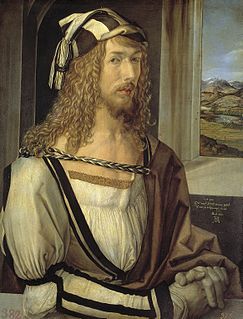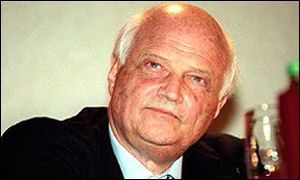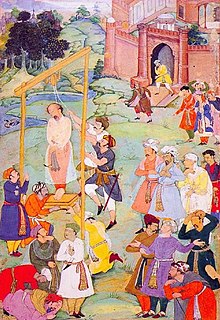A Quote by W. Somerset Maugham
But Philip was impatient with himself; he called to mind his idea of the pattern of life: the unhappiness he had suffered was no more than part of a decoration which was elaborate and beautiful; he told himself strenuously that he must accept with gaiety everything, dreariness and excitement, pleasure and pain, because it added to the richness of the design.
Related Quotes
Any piece of knowledge which the pupil has himself acquired- any problem which he has himself solved, becomes, by virtue of the conquest, much more thoroughly his than it could else be. The preliminary activity of mind which his success implies, the concentration of thought necessary to it, and the excitement consequent on his triumph, conspire to register the facts in his memory in a way that no mere information heard from a teacher, or read in a schoolbook, can be registered.
The vanity extended most of all to his library, arguably the real love of Cicero's life. It is difficult to name anything in which he took more pleasure, aside possibly evasion of the sumptuary laws. Cicero liked to believe himself wealthy. He prided himself on his books. He needed no further reason to dislike Cleopatra: intelligent women who had better libraries than he did offended him on three counts.
An actor must interpret life, and in order to do so must be willing to accept all the experiences life has to offer. In fact, he must seek out more of life than life puts at his feet. In the short span of his lifetime, an actor must learn all there is to know, experience all there is to experience, or approach that state as closely as possible. He must be superhuman in his efforts to store away in the core of his subconscious everything that he might be called upon to use in the expression of his art.
Pain and pleasure, like light and darkness, succeed each other; and he that knows how to accommodate himself to their periodical returns, and can wisely extract the good from the evil, knows only how to live: this is true contentment, at least all that is to be had of it in this world; and for this every man must be indebted not to his fortune, but to himself.
And he began to see the truth, that Ged had neither lost nor won but, naming the shadow of his death with his own name, had made himself whole: a man who, knowing his whole true self, cannot be used or possessed by any power other than himself, and whose life therefore is lived for life's sake and never in the service of ruin, or pain, or hatred, or the dark.
With the situation as gray as it could be, no one was more conspicuous in his calm presence of mind than Washington. They must be "cool but determined" he had told the men before the battle, when spirits were high. Now, in the face of catastrophe, he was demonstrating what he meant by his own example. Whatever anger or torment or despair he felt, he kept to himself.
None has more frequent conversations with a disagreeable self than the man of pleasure; his enthusiasms are but few and transient; his appetites, like angry creditors, are continually making fruitless demands for what he is unable to pay; and the greater his former pleasures, the more strong his regret, the more impatient his expectations. A life of pleasure is, therefore, the most unpleasing life.
Love is in the pleasure of possession, but in the Love of Allah there is no pleasure of possession, because the stations of the Reality are wonderment, the cancelling of the debt which is owed, and the blinding of vision. The Love of the human being for God is a reverence which penetrates the very depths of his being, and which is not permitted to be given except to Allah alone. The Love of Allah for the human being is that He Himself gives proof of Himself, not revealing Himself to anything that is not He.






































